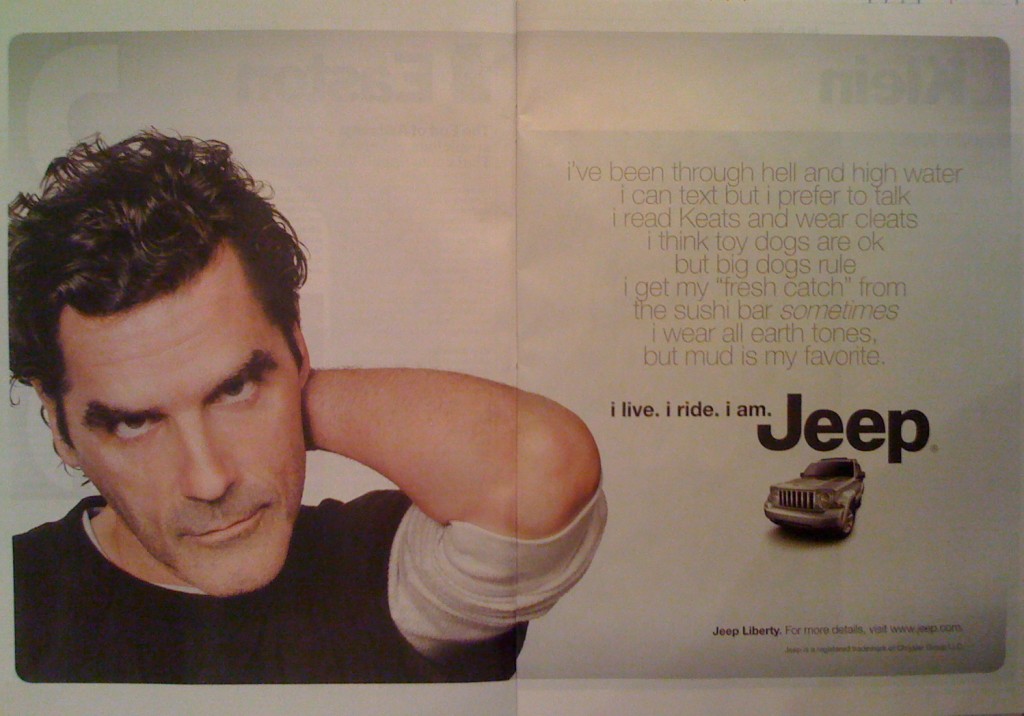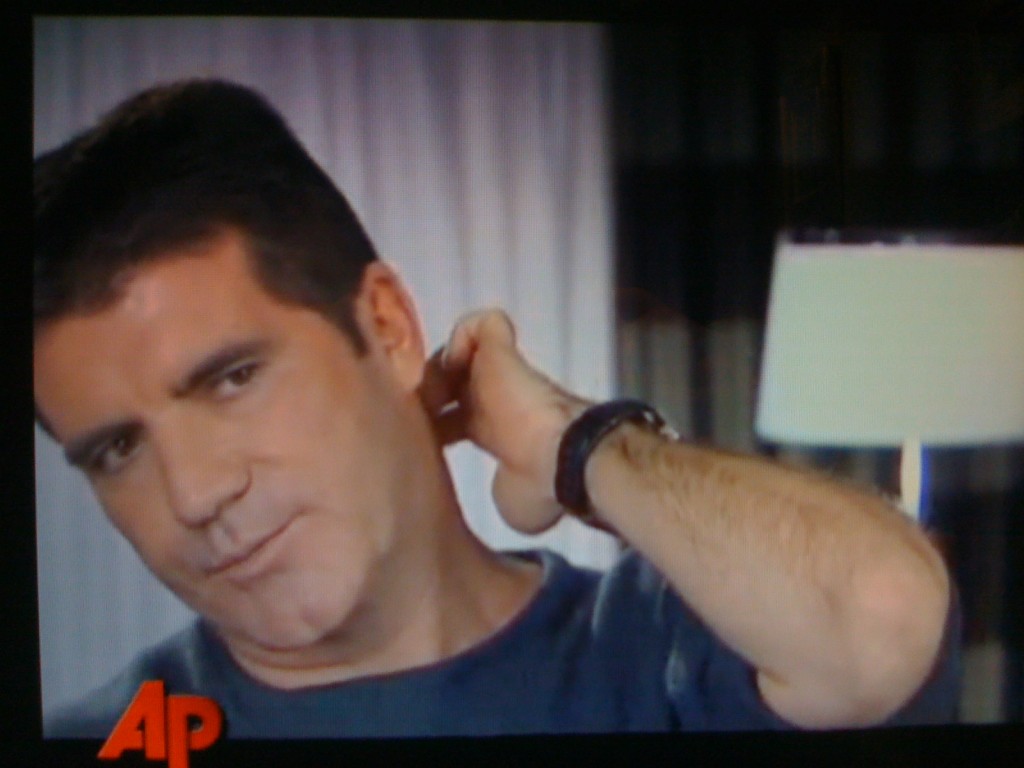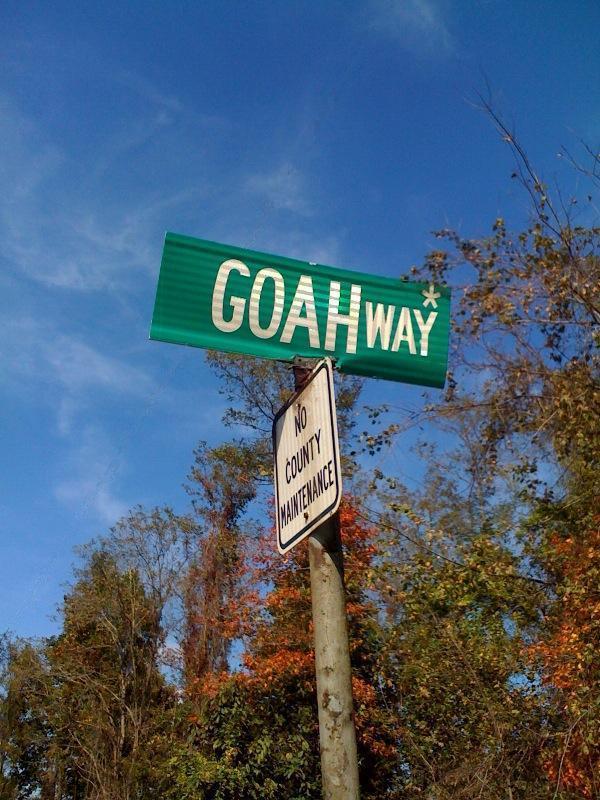.
On this lazy Sunday morning:
.
[Referencing the “sleeping” version of the pangram used by typing teachers.]
.
.
On this lazy Sunday morning:
.
[Referencing the “sleeping” version of the pangram used by typing teachers.]
.
The first six words in the title of this post — if you count each un-capitalized “i” as a word — is the tagline of a new advertising campaign for Jeep vehicles. The campaign’s 30-second TV commercials have not been well received by media observers. See, for example, comments here, here, and here. Jeep is also placing “i live, i ride, i am” advertisements in magazines, and in my opinion these are truly, madly, deeply, bad. I’m talking about text so awful it defies parody. Here is a two-page spread in the December 14, 2009 edition of TIME magazine (pages 34-35):
.

.
The words that appear in faint gray type in the upper right quadrant — the text providing the premise for the punchy tagline — reads as follows:
i’ve been through hell and high water
i can text but prefer to talk
i read Keats and wear cleats
i think toy dogs are ok
but big dogs rule
i get my “fresh catch” from
the sushi bar sometimes
i wear all earth tones,
but mud is my favorite.
Yes, those lower-case “i”s are indigenous to the copy. It wouldn’t surprise me if a phalanx of Apple attorneys were suspiciously eyeing those “i”s. It also wouldn’t surprise me if those same lawyers offer Chrysler, in lieu of crippling litigation, a friendly settlement proposal calling for minor changes in the tag line:
i live. i ride. i phone. i pod. i mac. i am.
But for now let’s give credit where credit is due. It was the Mad Men at Jeep’s advertising firm who came up with the idea of eschewing margins in favor of pseudo-poetically centering each of the nine descriptive lines. And it was their idea to italicize the word sometimes — a nuance sure to render many a reader weak-kneed.
I confess I was puzzled, however, to find the bold lack of punctuation surrendering to convention just when the statement reaches its final two lines. It’s as if the copywriter, almost done with the task, was suddenly touched by the ghost of her tenth grade English teacher, who whispered a plea: A comma and a period, please!
On the other hand, who among us can resist forming a wry smile at the rhyming of Keats with cleats? Clever.
As for the trendy sentiments expressed in the ad, yes, they’re sophomoric. But so what? (The visiting ghost came from the tenth grade, remember?) Maybe the whole thing is an homage to the malarkey found in the Manifesto of Thompson Hotels?
But enough about words. The bigger oddity is the photo in the left panel of the ad. This, presumably, is the Keatsian survivor of the fabled watery hell (or was it hellish waters?). This is a man who does not know for sure whether tonight’s dinner will include sushi. Can you blame him for scowling at us? Of course not.
But I wonder: Why was he asked to take a pose that is in-your-face and awkward, macho and goofy? Hey, I know the arm swing’s a guy thing; I do it too. But here’s the risk: Someone will be tempted to suggest this guy’s next gig ought to be on stage playing opposite Katisha (She: “My right elbow has a fascination that few can resist.” He: “Ditto my left, baby.”)
Is it just me, or do you also find the more you stare at the picture the more his bare forearm looks like a raw turkey drumstick attached to his left ear? (OK, maybe it’s just too close to Thanksgiving for me.) Whether it be a drumstick or an arm, the fact is the thing’s projecting forward from pictorial space, and none too elegantly. As artists will testify, foreshortening can be a bitch. See, for example, Durer’s posthumously published treatise, De Symmetria. So why did the creator of the ad go there, and why compound the problem by featuring a limb that’s freakishly fingerless?
At least when we watch Simon Cowell’s bad habit of scratching the back of his neck, we see him in motion (as in this video at 1:41 – 1:43) and we get to see his hand, as shown in this screen shot:
.

.
[As for the title of this post, if you want to read more about “i yi yi” (aka, “Aye Yi Yi”), an expression used to show frustration, hopelessness, sadness, annoyance, click here and here.]
From an article in The Wilson Quarterly, online here, comes this observation by Tyler Cowen:
“The measure of cultural literacy today is not whether you can ‘read’ all the symbols in a Rubens painting but whether you can operate an iPhone or other web-related technologies.”
. . .
In recent days this blog has received a spate of comments from spammers fronting for online “pharmacies” (if you know what I mean). Each message begins by recounting a joke (to lower your defenses?). I thought one of the jokes was good enough to repeat here. It’s in the child-pleasing Q&A format and goes like this:
“What happens to illegally parked frogs?”
“They get toad away.”
.
Driving through rural Maryland this afternoon, I saw a sign announcing two country roads, left and right, up ahead.

Sure enough, a hundred yards further along I came upon a turn-off.
.
So warned, I stuck to the main road.
Seven times I have tried to get the New Yorker magazine to recognize my cartoon-caption-writing prowess. Seven times I’ve been snubbed. Not one of my seven entries has been crowned with the laurels of finalist (for each contest three finalists are chosen), let alone winner. Each stinging rejection was unfair.
Demonstrably unfair.
Let me demonstrate.
Below are the seven initially silent cartoons, each followed by four captions suggested by contest entrants. Every set of four includes my own submission mixed in with the three finalists. See if you can spot the the one — mine — that somehow just doesn’t belong in the same class.
. . .
“Have you considered writing this story in the third monkey rather than the first monkey?”
“This page — the one that begins, ‘Who’s there?’ — keep working on that.”
“We’ll have to run it by our infinite number of editors.”
“Sorry, guys. It’s another rejection letter. ”
. . .
“You want to impress me? Drive to the store and get me more beer.”
“Lemme tell ya — and this is from personal experience — knowing how to roll over and play dead comes in much more handy. ”
“Don’t worry—they’ll never actually build it.”
“Trust me, my lessons have way more real-world applications.”
. . .
“He’s always thinking outside the rock.”
“His heart is set on finding a vintage woolly Plymouth.”
“He needed a place to park his wheel.”
“Yeah, but the weirdest thing was, once he built it I suddenly felt compelled to give him a list of things to do around it.”
. . .
“I hate connecting through Roswell.”
“Just a mild case of the sniffles, she says.”
“I don’t care if he’s single-celled, he should have bought two seats.”
“This guy’s wife lets him drink on the plane!”
. . .
“Oh, now you want to talk, when all week it was ‘Do Not Disturb.’”
“Final warning, Mr. Weber. We don’t take kindly to shampoo thieves.”
“I can fluff your pillow the easy way or the hard way.”
“The time is 11:59. You have one minute to check out.”
. . .
“On what planet do you imagine this would be funny?”
“Lemme put it this way — when it comes to funny, me and you don’t see eye to eye.”
“It would work better with an alien.”
“It’s just not funny if she looks so sexy.”
. . .
“The seller is extremely motivated.”
“According to the listing, there’s also a full basement.”
“The heating system is pretty old but very reliable.”
“I strongly recommend that you read the fine print on this one.”
. . .
If the judges at the New Yorker are to be believed, in each instance above you’ve encountered, amid the glorious sounds of three Stradivarius instruments, the raw bleat of a kazoo. You spied a set of rings finely crafted by Tiffany, Cartier, and Harry Winston, to which I contributed a cigar band. Below each cartoon are three sweet flowers, plus a sprig of crabgrass from yours truly.
OK, I’ll stop now and proceed to the question:
Can you tell in each instance which is the dud caption?
Isn’t it obvious?
No? You say . . . no?
Oh, thus am I vindicated, and bitter no more.
______________
Answer: In each set of four captions, the winner as selected by the New Yorker is first, my own rejected entry second, and the two non-winning finalists third and fourth.